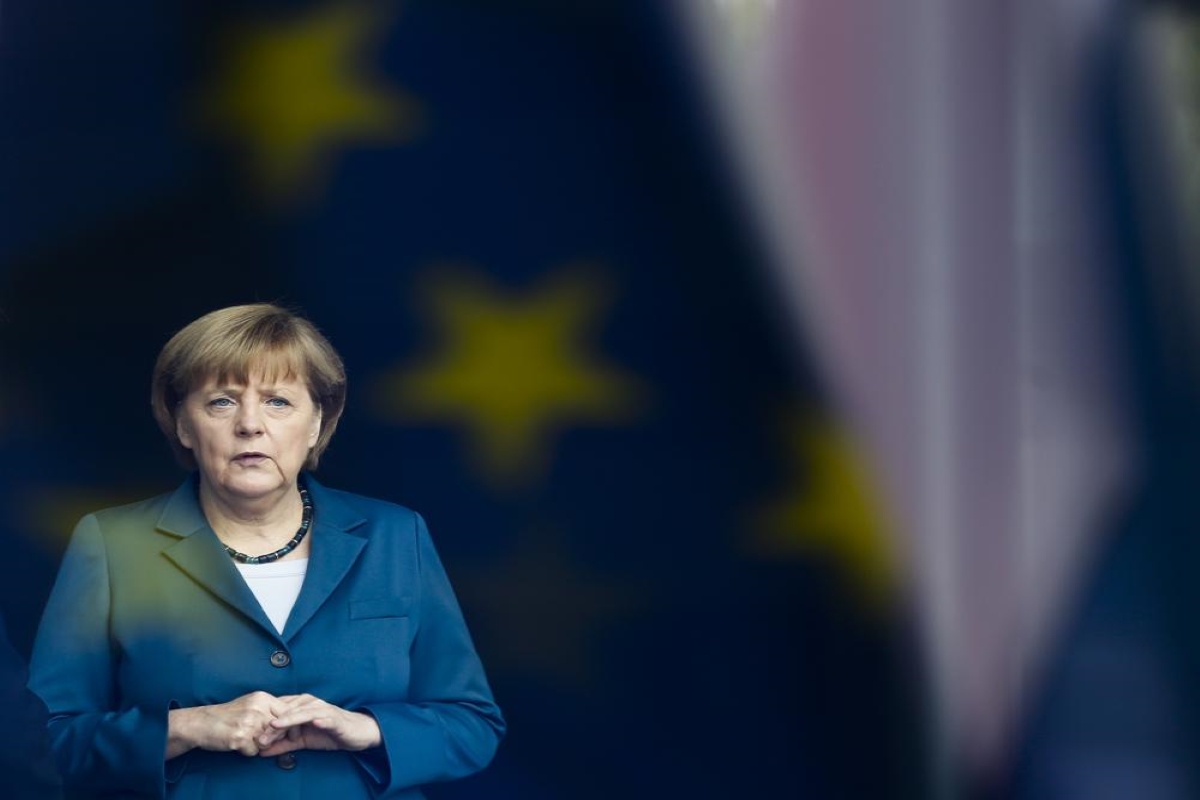Farooq Abdullah steps down from the post of NC president
Speculation is that 85-year-old Abdullah will assume the role of party patron and his son, Omar Abdullah, currently the party’s vice-president, is likely to succeed him as the new party chief.
Whatever the ultimate verdict, Merkel can celebrate a unique end to her tenure: she is set to become the first German chancellor to leave power when she chooses.

German Chancellor Angela Merkel stand behind a window with a reflection of the European flag.
Angela Merkel will leave office as one of modern Germany’s longest-serving leaders and a global diplomatic heavyweight, with a legacy defined by her management of a succession of crises that shook a fragile Europe rather than any grand visions for her own country.
In 16 years at the helm of Europe’s biggest economy, Merkel did end military conscription, set Germany on course for a future without nuclear and fossil-fueled power, enable the legalization of same-sex marriage, introduce a national minimum wage and benefits encouraging fathers to look after young children, among other things.
Advertisement
But a senior ally recently summed up what many view as her main service: as an anchor of stability in stormy times. He told Merkel: “You protected our country well.”
Advertisement
“All the major crossroads you had to navigate … we never mapped out in any election program — they came overnight and you had to govern well,” Bavarian governor Markus Soeder said.
Merkel passed her first test in 2008, pledging at the height of the global financial crisis that Germans’ savings were safe. Over the following years, she was a leading figure in the effort to save the euro currency from the debt crisis that engulfed several members, agreeing to bailouts but insisting on painful spending cuts.
In 2015, Merkel was the face of a welcoming approach to migrants as people fleeing conflicts in Syria and elsewhere trekked across the Balkans.
And in the twilight of her career — she announced in 2018 that she wouldn’t seek a fifth term — she led a COVID-19 response that saw Germany fare better than some of its peers.
On the international stage, Merkel insisted on seeking compromises and pursuing a multilateral approach to the world’s problems through years of turbulence that saw the U.S. drift apart from European allies under President Donald Trump and Britain leave the European Union.
Along with a pragmatic willingness to jettison conservative orthodoxy such as conscription when opportune, it enabled her to dominate the center ground of German politics.
There is plenty of unfinished business: Merkel has conceded that “the lack of digitization in our society” is a problem, ranging from notoriously patchy cell phone reception to many health offices using faxes to transmit data during the pandemic.
Merkel’s political longevity is already historic. Among democratic Germany’s post-World War II leaders, she lags only Helmut Kohl, who led the country to reunification during his 1982-98 tenure. She could overtake even him if she is still in office on Dec. 17. That’s feasible if parties are slow to form a new government after the Sept. 26 election.
Merkel, 67, insists that others must judge her record.
Predecessor Gerhard Schroeder, whose welfare-state trims and economic reforms were beginning to kick in when he left office, arguably deserves part of the credit.
Merkel also inherited a plan to exit nuclear power from Schroeder, but abruptly accelerated it following the meltdowns at Japan’s Fukushima plant in 2011. More recently, she set in motion Germany’s exit from coal-fueled power.
The chancellor pointed to progress on renewable energy, saying its share of the German energy mix has risen from 10% to well over 40%.
Merkel praised her government’s drive to improve Germany’s public finances, which enabled it to stop running up new debt from 2014 until the coronavirus pandemic pushed it into huge rescue packages.
Whatever the ultimate verdict, Merkel can celebrate a unique end to her tenure: she is set to become the first German chancellor to leave power when she chooses.
Advertisement